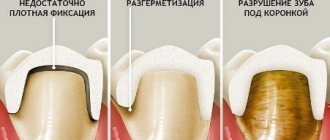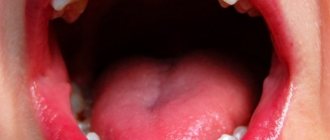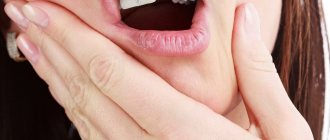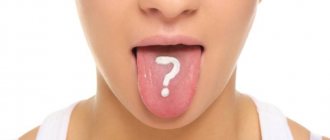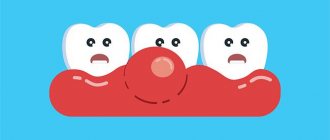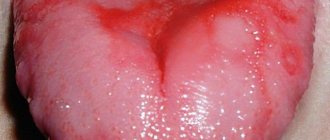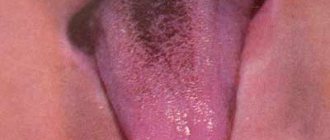Gastroesophageal reflux disease (GERD)
is a disease caused by repeated spontaneous reflux of stomach contents (and in some cases, duodenum) into the esophagus.
Our body is designed in such a way that movement must occur in only one direction: food from the esophagus must enter the stomach.
The reverse movement is prevented by a ring of muscle, the lower esophageal sphincter, which provides a barrier that prevents stomach contents from naturally flowing into the esophagus. The digestive process begins in the stomach. Gastric juice secreted to digest food contains aggressive hydrochloric acid. Once in the esophagus, where it is not intended to be located, the acid causes irritation of the mucous membrane, manifested as a burning sensation along the esophagus, which we call heartburn. Heartburn can occur even in a healthy person, but if reflux occurs quite often, irritation of the esophageal mucosa can cause inflammation.
Thus, isolated cases of heartburn are not a disease, but if irritation of the esophageal mucosa occurs often enough, GERD is diagnosed. In this case, endoscopic examination may not reveal mucosal erosion. This form of the disease is called endoscopically negative reflux disease.
.
It accounts for approximately 70% of cases. In 30% of cases, endoscopy reveals mucosal lesions. This form of the disease is called reflux esophagitis
.
Causes of GERD
Reflux (reflux of stomach contents into the esophagus) can occur for the following reasons:
decreased tone of the lower esophageal sphincter.
Sphincter weakness may result from:- consumption of caffeinated drinks, chocolate;
- smoking;
- alcohol abuse;
- hormonal changes during pregnancy;
taking certain medications;
- flatulence (which, in turn, can be a consequence of poor nutrition, gastrointestinal diseases, digestive disorders - dyspepsia);
pregnancy;
- hiatal hernia.
For the development of gastroesophageal reflux disease, not only the reflux itself is important, but also some other factors that contribute to the aggravation of the situation, for example:
- depressed state of the esophageal mucosa, in which it is unable to resist damage;
- impaired ability of the esophagus to cleanse itself. Normally, the esophagus should quickly be cleared of the stomach contents that have entered it - due to gravity and peristalsis, and the acidity of the environment should be eliminated by sodium bicarbonate, which is part of the saliva.
Factors that provoke reflux are:
- stress;
- eating too much food (overeating);
- eating foods that cause increased gas formation and other digestive disorders;
- physical activity after meals.
Treatment approach
In order to eliminate the smell of chlorine from the mouth, it is necessary to find out the cause of its appearance. With the help of various tests and studies, deviations from the norm can be identified and the disease can be determined. Treatment should be comprehensive and depend on the reason for the smell.
Along with the main therapy, additional methods of eliminating a specific aroma should be used:
- Stimulating salivation . Abundant saliva is released when chewing parsley, mint, dill and cloves. You can use sugar-free lollipops and mints to prevent tooth decay.
- Drink plenty of fluids . When there is a lack of water, the body produces insufficient saliva. As a result, not all bacteria in the mouth are dissolved and washed away, resulting in an unpleasant odor.
- Mouth rinse . You can use ready-made rinses or prepare a decoction of herbs that have antimicrobial, anti-inflammatory and refreshing effects. Herbs such as chamomile, calendula, and sage are perfect. One tablespoon of raw material should be poured with boiling water (500 ml) and left for one hour. Rinse your mouth with warm infusion.
- Application of sorbents . Activated carbon or atoxil will help reduce intoxication of the body.
For hokinsinuria, along with therapy, it is necessary to adhere to a special diet that practically excludes protein from the diet. You should also reduce your intake of foods containing phenylalanine and tyrosine.
To prevent chlorine odor, preventive measures should be followed:
- daily cleaning of the tongue from plaque;
- regular visits to the dentist;
- active lifestyle;
- timely and high-quality treatment of emerging diseases;
- rejection of bad habits;
- compliance with safety measures when working with chloride substances;
- daily brushing of teeth with high-quality toothpastes;
- proper nutrition;
- drinking quality drinking water;
- inclusion of a large amount of fresh fruits and vegetables in the diet;
- consumption of a complex of vitamins.
Symptoms of GERD
Acid from the stomach can enter the respiratory tract (this usually happens when lying down) and cause a sore throat, hoarseness, dry mouth, and cough. GERD can stimulate the development of bronchial asthma, chronic obstructive bronchitis, and aspiration pneumonia.
The constant presence of acidic contents in the esophagus leads to scarring of the mucous membrane of the lower part of the esophagus, as a result of which the lumen of the esophagus narrows (this complication of GERD is called peptic stricture of the esophagus). In this case, pain when swallowing and dysphagia (difficulty swallowing) may occur.
But first of all, GERD is characterized by symptoms that usually appear an hour and a half after eating. This:
Heartburn
Heartburn is the main symptom of GERD. The presence of heartburn that regularly occurs after eating is the basis for diagnosing the disease.
More about the symptom
Belching
With GERD, belching after eating is typical.
More about the symptom
Sour or bitter taste in the mouth
A sour taste in the mouth means that acid from the stomach has traveled up the esophagus and irritated the taste buds. The taste in the mouth may be bitter if bile enters the esophagus, which normally should not rise above the duodenum.
Chest pain
A burning sensation may be felt behind the sternum (along the esophagus). Often the complaint is formulated as chest pain, so it is important to make sure that the pain is caused by irritation of the esophageal mucosa, and not by heart problems. In the case of GERD, the pain is usually associated with food intake, begins in the epigastric region and only then rises higher. Pain can radiate to the neck, shoulders, interscapular area, and lower jaw.
Haunting sweetness
The sweetness that spreads in your mouth from just eating a cake is a very pleasant sensation. But, if a person’s saliva continues to be sugary, even after herring, even after jellied meat with horseradish, it’s worth thinking about. The reasons for the appearance of a constant sweetish taste in the mouth may be:
poisoning with chemicals (for example, pesticides or phosgene) - if, in addition to a sweet taste, a person feels weak and unwell and understands that he may have had contact with poisons, he should immediately consult a doctor;
changes in carbohydrate metabolism in the body and impaired insulin production - with a lack of insulin in the blood, sugar accumulates in the blood and lymphatic fluid, penetrates into saliva and it becomes sweet. Therefore, the first thing you should do when a persistent sweet taste appears is to contact an endocrinologist and donate blood for sugar. This is how diabetes mellitus can manifest itself. A sweet and sour taste in the mouth, especially in the morning, also accompanied by frequent heartburn, often occurs with problems with the pancreas, in particular with pancreatitis;
nerve damage, including infectious and viral - take a general blood test;
stress, depression - when a person’s life is unsweetened, stress hormones begin to actively work in his body, which lead to an increase in blood glucose levels. In this case, the taste appears briefly immediately after psycho-emotional shocks;
respiratory tract infections and some dental diseases caused by Pseudomonas aeruginosa - these bacteria are capable of secreting sweet substances;
smoking – or rather, a recent cessation of this habit.
GERD Treatment Methods
Treatment of GERD is carried out by a gastroenterologist. Treatment is aimed at relieving inflammation of the esophageal mucosa, reducing the frequency of reflux of stomach contents into the esophagus, reducing the damaging properties of refluxate (the substance that enters the esophagus from the stomach), and increasing the protective properties of the esophageal mucosa.
Of great importance is:
Drug treatment
Treatment with medications is prescribed by a doctor and must take into account the individual characteristics of the patient.
Lifestyle change
Normalization of lifestyle is of great importance. It is necessary to quit smoking, limit, or better yet eliminate, alcohol consumption. You should not eat fatty, spicy, sour foods, as well as coffee, tea, chocolate, legumes, cabbage, peas, and brown bread. It is better to take food more often (4-6 times a day), but in small portions. You should not eat before bed (the last meal should be 2-2.5 hours before bedtime). You should sleep with your upper body elevated to reduce the likelihood of reflux during sleep.
Make an appointment Do not self-medicate. Contact our specialists who will correctly diagnose and prescribe treatment.
How to get rid of the smell of alcohol from your breath, and how to prevent its occurrence
Of course, it is simply impossible to completely eliminate the occurrence of fumes. But there are some ways to help cope with this problem to one degree or another.
So, you should definitely eat a hearty meal before the planned party. It's good to eat something fatty. It also helps with hangovers. People recommend soup with meat broth, butter, and fatty fish. Pizza and pasta, for example, are rich in carbohydrates, and these foods also help. Next, you need to drink alcohol. But not fatty foods. It is better to choose something light as a snack. Fruits, nuts, bread are ideal.
Next, don’t mix alcohol. If you drink just one thing, there will be a fume, but not a strong one, and getting rid of it won’t be difficult. The quality of the alcohol is also important - good drinks rarely cause problems. It also makes sense to monitor the amount you drink and not overdrink. If you're going to drink a lot, you need to plan the date of the party so that you don't have to go anywhere the next day.
Among the preliminary measures, activated carbon - it is taken before the event, 1 tablet per 10 kg of body weight. Instead of coal, you can take a spoonful of Enterosgel.
But how to get rid of the smell of alcohol from your breath if the feast has already passed, but the problem remains present? There are good home solutions that do not get rid of the cause, but successfully eliminate the unpleasant odor for at least an hour or two. Mint toothpaste is suitable for this and should be used to thoroughly brush your teeth. After this there will be no smell for some time. Another common remedy is a lollipop or a piece of chocolate, they can also temporarily remove the fumes. Chewing gum also helps for a while. But they only work for about 15 minutes, after which the fume appears again . A good way is to drink citrus juice with a couple of drops of vinegar. You can also chew coffee beans, dill or parsley, especially dried green tea leaves. Regular roasted sunflower seeds also help. Among the methods that act quickly are milk with a spoon of honey and brine. There are also Petrusha and Antipolitsay, which can be purchased at the pharmacy, but they only work for about 30 minutes. These remedies temporarily solve the problem of how to get rid of the smell of alcohol from the mouth.
All these measures work temporarily. If you need to get rid of the smell completely, you need to take measures to accelerate the removal of alcohol from the body. First of all, you should drink as much water as possible. This way it will be possible to speed up the metabolism, and therefore quickly remove the remaining alcohol, removing the fumes. Diuretics also help, accelerating the elimination of toxins in the urine. These substances also come out with sweat, so a sauna or steam bath is also suitable. Increased activity and walks in the fresh air also relieves fumes. After all, at the same time, breathing quickens, ventilation of the lungs improves, and alcohol vapors disappear faster. But it’s also worth remembering that excessive physical activity with a hangover is not recommended. Therefore, you need to know when to stop.
When thinking about how to get rid of the smell after alcohol, you need to remember the benefits of a good breakfast. Even if after yesterday there is no appetite at all. The next morning, have a good breakfast of oatmeal and drink low-fat broth. You also need to remember the benefits of sorbents. In the morning you can take the same activated carbon, up to 20 tablets. You can choose Enterosgel and other drugs of the same type. Glutargin also helps, as it restores the liver , which had to deal with a lot of work. These remedies help personally, although not instantly. And in extreme cases, a cleansing enema and gastric lavage helps. This method can be considered one of the most effective and fastest.
